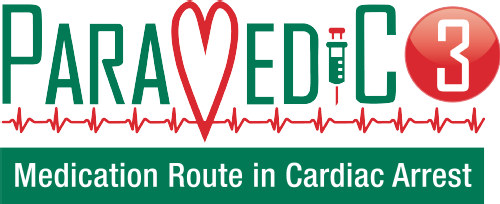About Cardiac Arrest
A cardiac arrest occurs when the heart suddenly stops beating, and is one of the most severe medical emergencies.
A cardiac arrest is different from a heart attack, where the heart is damaged but does not necessarily stop beating.
 Survival rates are very low. Each year in the UK around 30,000 people are treated for a cardiac arrest outside of hospital, but sadly only around 1 in 10 people survive to return home.
Survival rates are very low. Each year in the UK around 30,000 people are treated for a cardiac arrest outside of hospital, but sadly only around 1 in 10 people survive to return home.
How is cardiac arrest treated?
The immediate treatment for a cardiac arrest is CPR (cardiopulmonary resuscitation); this is a combination of rescue breathing and chest compressions.
Prompt and effective CPR is essential to prevent damage to vital organs, and increases the chance of survival. In addition to CPR other advanced treatments are given such as defibrillation (electrical shocks) and oxygen.
If initial treatments do not work, drugs such as adrenaline are widely used to treat cardiac arrest. The sooner these drugs are given the better the chance is that they will be successful.
Currently, paramedics normally give drugs into a vein when a patient has intravenous (IV) vascular access. The problem with this is it can take several critical minutes to get lifesaving drugs into a vein. A new, faster way of giving drugs is to put a small needle into an arm or leg bone when a patient has intraosseous vascular access (IO). This allows drugs to be injected directly into the rich blood supply found in the bone marrow. We do not currently know which is the best approach as none of the existing research is good enough to help paramedics decide how best to treat people with cardiac arrest.
The aim of this trial is to work out the most effective way to treat someone when their heart suddenly stops working out of hospital by giving drugs through a vein or into the bone.

Trial OverviewLink opens in a new window
About cardiac arrestLink opens in a new window
Support for the trialLink opens in a new window
Information for ambulance research teamsLink opens in a new window
Information for the publicLink opens in a new window
FAQsLink opens in a new window
Trial ResourcesLink opens in a new window
News and eventsLink opens in a new window
PublicationsLink opens in a new window
Contact the teamLink opens in a new window
Enquiries:
Please direct all enquiries for the PARAMEDIC-3 trial team.
Telephone: 07385029213
Email: paramedic3@warwick.ac.uk

